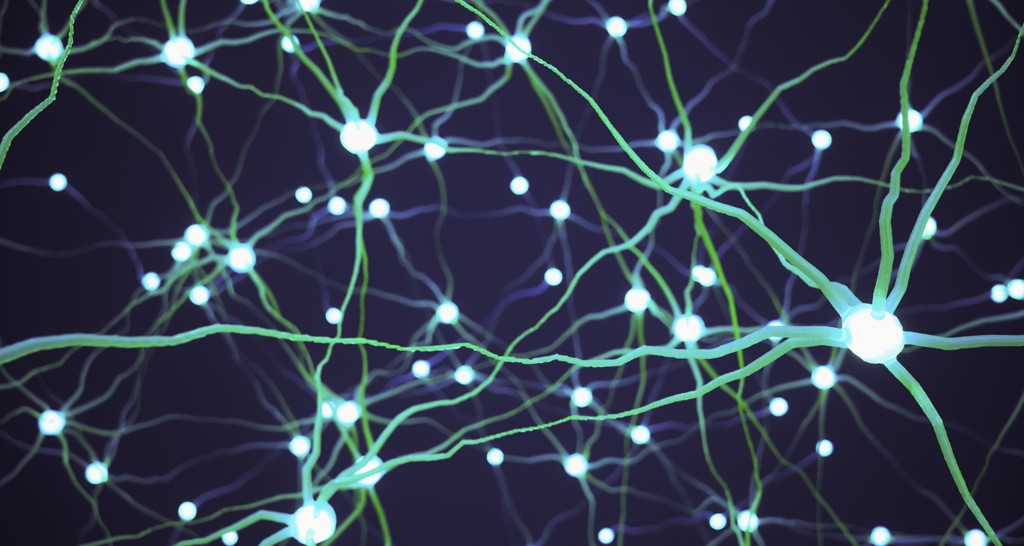
[tldr]
- A protein called brain-derived neurotrophic factor (BDNF) could be the answer to keeping you mentally switched on for life.
- BDNF helps produce new brain cells and strengthen existing ones.
- It also eases depression, boosts weight loss, and protects against neurodegenerative diseases.
- As you get older, your levels of BDNF naturally start to fall. With a few well-placed daily habits, you can release more BDNF all the time, keeping your brain resilient and priming it to grow stronger.
- Ways to increase BDNF include exercise, meditation, deep sleep, and sunlight.
- Things that block BDNF include stress, sugar, and social isolation.
[/tldr]
Take a moment and imagine yourself at 80, 90, or heck, even 100. Now imagine that your brain is as sharp and your memory is as good as it is today. That’s not a pie-in-the-sky dream. A little protein called brain-derived neurotrophic factor (BDNF) could be the answer to keeping you mentally switched on for life. High levels of BDNF rapidly rewire your brain, helping you learn faster, remember better, and age slower.
Read on to learn what BDNF is, its many benefits, and ways to increase this powerful protein.
Download the Bulletproof 30-Day Upgrade to supercharge your brain and body
What is BDNF?
Think of brain-derived neurotrophic factor as fertilizer for your brain. You have billions of neurons (aka brain cells), and BDNF keeps them flourishing and strong. When you release BDNF, it flips the switch on a series of genes that grow brand-new brain cells and pathways. BDNF also strengthens the neurons you already have. Along with keeping you mentally alert and improving memory,[ref url=”https://www.pnas.org/content/105/7/2711″] high BDNF carries loads of other benefits, too.
Benefits of high BDNF
- Increases brain plasticity. When your brain cells get damaged or face a stressful situation, BDNF protects them and helps them come back stronger.
- Eases depression. Your neural pathways become more flexible instead of shutting down, which could explain why higher levels of brain-derived neurotrophic factor are associated with warding off depression.[ref url=”https://www.ncbi.nlm.nih.gov/pmc/articles/PMC3022308/”]
- Boosts weight loss. BDNF can help you lose weight. Studies show that the more overweight a person is, the lower their BDNF levels. One study suggests that, at least in mice, lowering levels of BDNF did make them more prone to obesity.[ref url=”https://www.ncbi.nlm.nih.gov/pmc/articles/PMC3388065/”][ref url=”https://www.ncbi.nlm.nih.gov/pubmed/24548578″]
- Improves sleep. Brain-derived neurotrophic factor can help you sleep better by increasing your slow brain waves during your deepest stage of sleep.[ref url=”https://www.ncbi.nlm.nih.gov/pmc/articles/PMC3274334/”]
- Protects against neurodegenerative disease. Research suggests that high BDNF may lower your risk of developing neurodegenerative disorders such as Alzheimer’s and Parkinson’s. One study tracked a group of adults for ten years, and found that those with the highest levels of BDNF developed dementia and Alzheimer’s 50 percent less of the time than those with the lowest levels of this protein.[ref url=”https://www.ncbi.nlm.nih.gov/pubmed/27701410″]
As you get older, your levels of brain-derived neurotrophic factor naturally start to fall. With a few well-placed daily habits, you can set yourself up to release more BDNF all the time, keeping your brain resilient and priming it to grow stronger.
How to increase BDNF
1. Exercise
Endurance exercise releases a protein called FNDC5 (fibronectin type III domain-containing protein 5. How’s that for a mouthful?). FNDC5, in turn, increases brain-derived neurotrophic factor by 200-300 percent.[ref url=”http://onlinelibrary.wiley.com/doi/10.1113/expphysiol.2009.048512/full”] In another study, men who cycled daily for 3 months nearly quadrupled their resting BDNF.[ref url=”http://www.sciencedirect.com/science/article/pii/S2095254614001161″][ref url=”http://journals.plos.org/plosone/article?id=10.1371/journal.pone.0076050″]
Strength training increases BDNF, but only for a few minutes post-workout. Opt for moderately intense cardio, like Mark Sisson recommends in this Bulletproof Radio podcast episode. Not a fan of running? Swim, cycle, do fast-paced yoga, or pick up a sport. Whatever gets your heart rate going will increase BDNF levels as well.
2. Deep sleep
You release brain-derived neurotrophic factor during the deeper stages of sleep.[ref url=”https://www.ncbi.nlm.nih.gov/pubmed/25584253″] There are four sleep stages, and you cycle through them every 90 minutes or so. On average, you spend about a third to half the night in stages 3 and 4, the ones that give you deep, restorative sleep.
With a few biohacks, though, you can drop into deep sleep faster and stay there longer in each sleep cycle. That means more BDNF release and better rest in less time. Learn how to sleep better with these sleep hacks.
3. Meditation
Stress is toxic to BDNF.[ref url=”http://www.nature.com/nrn/journal/v16/n4/full/nrn3916.html”] No surprise, then, that meditation increases BDNF,[ref url=”https://www.ncbi.nlm.nih.gov/pubmed/24705269″] specifically strengthening areas of the brain that correlate with pain tolerance, body awareness, meta-thinking (awareness of how you think), memory, emotional control, happiness, and attention.[ref url=”https://www.ncbi.nlm.nih.gov/pmc/articles/PMC4104707/”]
Start by meditating for 5 minutes every morning. Some days you may quiet your mind, while other days your thoughts may run rampant. When beginning a meditation practice, don’t get too attached to the results. Consistency is more important than “getting it right.” Make it a habit with this 30-day meditation challenge for beginners.
4. Psychedelics
Both psilocybin (mushrooms) and LSD (acid) increase BDNF production and neurogenesis.[ref url=”https://www.ncbi.nlm.nih.gov/pubmed/23727882″][ref url=”http://www.nature.com/nrn/journal/v11/n9/fig_tab/nrn2884_F1.html”][ref url=”https://www.jstage.jst.go.jp/article/jphs/91/4/91_4_267/_article”] That could explain why there are so many studies coming out about psychedelic-assisted therapy helping with depression and PTSD — perhaps the combination allows people to rapidly rewire the stubborn pathways that are causing them pain.[ref url=”https://www.ncbi.nlm.nih.gov/pmc/articles/PMC4104707/”]
Here’s a breakdown of several psychedelics. These psychedelics are probably illegal where you live, and they can cause psychological distress if you take them without care. Remember to always biohack responsibly.
Related: Why Ketamine Infusions Are the Next Wonder Drug for Depression
5. Polyphenols
These antioxidants stimulate brain-derived neurotrophic factor and protect your brain from stress.[ref url=”https://www.ncbi.nlm.nih.gov/pubmed/23312069″] Coffee, green tea, dark chocolate, blueberries, and colorful vegetables are all excellent polyphenol sources.
Coffee fruit extract (the red fruit surrounding coffee beans) is especially potent, and 100 mg of coffee fruit extract raised BDNF by about 140 percent in several studies.[ref url=”http://file.scirp.org/pdf/FNS_2013083011411606.pdf”][ref url=”http://www.jneurosci.org/content/30/38/12653″] The boost lasted for a few hours. Coffee fruit extract is a useful supplement to add to your brain hacking toolbox.
6. Hypoxia
Depriving your brain of oxygen for a brief period triggers instant BDNF release.[ref url=”https://www.ncbi.nlm.nih.gov/pmc/articles/PMC3977651/”][ref url=”https://www.ncbi.nlm.nih.gov/pmc/articles/PMC3487856/”] You can do this any time in under two minutes with simple breathing exercises like the Wim Hof method.
7. Sunlight
Simple sun exposure increases brain-derived neurotrophic factor.[ref url=”https://academic.oup.com/jnci/article/97/3/161/2544132/Sunlight-and-Reduced-Risk-of-Cancer-Is-The-Real”] It also improves mood, increases vitamin D production, and actually decreases your risk of skin cancer, provided you don’t burn yourself.[ref url=”http://journals.plos.org/plosone/article?id=10.1371/journal.pone.0076050″] Get outside in direct sunlight for 10-20 minutes a day. Leave your sunscreen and sunglasses at home. You want the UV rays hitting photoreceptors on your skin and in your retinas.
8. Intermittent fasting
Intermittent fasting — when you eat all your daily calories during a set period of time — increases your BDNF.[ref url=”https://www.ncbi.nlm.nih.gov/pubmed/16011467″] In one study, mice with Huntington’s disease — a neurodegenerative disorder — who were put on an intermittent fasting diet showed a slower progression of the disease than mice fed a normal diet. The fasting mice had higher levels of BDNF, suggesting that intermittent fasting can boost production of this protein, and therefore protect against brain atrophy.[ref url=”https://www.pnas.org/content/100/5/2911″] Learn more about intermittent fasting with this beginners guide.
What blocks BDNF?
- Stress. Stress is one of the biggest BDNF inhibitors.[ref url=”https://www.ncbi.nlm.nih.gov/pubmed/25584253 https://www.ncbi.nlm.nih.gov/pmc/articles/PMC2694409/”] You’re constantly bombarded with work, advertisements, information, pollution, artificial lighting, and all kinds of other stimuli that tax your biology. Make it a part of your day to manage your stress.
- Sugar. Eating sugar, and fructose in particular, directly curbs BDNF production in rats[ref url=”https://www.ncbi.nlm.nih.gov/pmc/articles/PMC3448146/”] and links to cognitive decline in humans.[ref url=”https://www.ncbi.nlm.nih.gov/pubmed/11119686″] That doesn’t mean you have to cut out sweets, though. Swap sugar for one of these high-quality alternative sweeteners (not Splenda or aspartame). And if you’re struggling with sugar cravings, try taking this 30-day no sugar challenge.
- Social isolation. Lack of meaningful mental stimulation leads to lower BDNF levels.[ref url=”https://www.ncbi.nlm.nih.gov/pubmed/16533499″] Social isolation also contributes to depression, which decreases BDNF. Make it a point to spend time with friends regularly; the complex richness of social interaction challenges your brain and keeps it adaptable.
BDNF is one of the most powerful biological triggers for sharpening your mind. Incorporate one or several of these habits into your daily life to think faster and better. And for more brain hacks, check out this ultimate guide on keeping your brain young and strong.





















